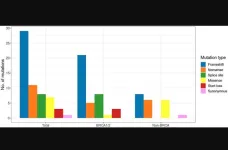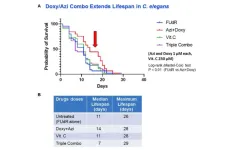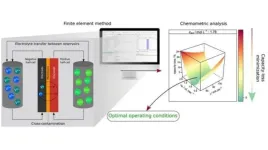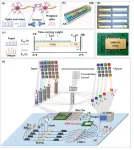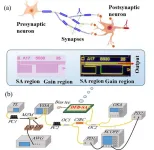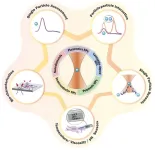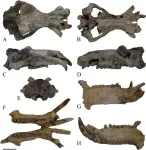“Our study suggests that it is feasible to screen most genes across the fetal genome using a blood test rather than requiring an invasive procedure such as amniocentesis,” explains senior author Michael E. Talkowski, PhD, director of MGH’s Center for Genomic Medicine, an associate professor of Neurology at Harvard Medical School (HMS), and Institute Member of the Broad Institute.
Non-invasive prenatal testing (NIPT), also known as prenatal-cell-free DNA-screening, allows a pregnant individual to receive a blood test that screens for very large changes in fetal chromosomes such as an extra copy of chromosome 21, known as Down syndrome (trisomy 21); the gain or loss of entire copies of other chromosomes; the presence and number of X and Y sex chromosomes (indicating the sex of the fetus), and, more recently, for a small number of variants that are relevant for some fetal conditions.
For many prenatal genetic diagnoses, however, it is necessary to determine individual nucleotide changes across the protein coding sequence of the genome, known as the ‘exome.’ Exome screening currently requires genetic testing with an invasive medical procedure such as amniocentesis that involves significant cost and carries some inherent risks to the mother and fetus. The newly developed test could offer the capacity to discover and interpret variants across the fetal exome from DNA circulating in the mother’s blood. The method is referred to by the team as non-invasive fetal sequencing (NIFS).
This high-resolution NIFS approach enabled the research team to survey the exome, discover sequence changes, and distinguish potentially pathogenic variants from likely benign variants inherited from the mother. They tested their NIFS approach on 51 pregnancies that spanned all three trimesters and were representative of the pregnant population receiving care at Massachusetts General Hospital and Brigham and Women’s Hospital, the founding members of the Mass General Brigham healthcare system.
The NIFS screening method used a maternal blood draw without the need for a separate genetic test on the mother or father. The research team found that the method was highly sensitive for discovering single-base DNA changes and small insertions and deletions that were present in the fetal genome but not in the maternal genome, irrespective of the amount of fetal DNA detected. “In our retrospective analysis, we were able to accurately discover and predict fetal sequence variants from the NIFS approach with >99% sensitivity from the raw data and >90% sensitivity after filtering using our analysis methods,” said co-lead author Harrison Brand, PhD, an investigator in the department of Neurology at MGH and an assistant professor at HMS.
In 14 pregnancies referred for the current standard-of-care genetic testing that were also evaluated with the NIFS approach, NIFS detected all of the clinically relevant variants that were reported from invasive testing in the same individuals.
The authors conducted this initial test on 51 pregnancies, but the findings suggest that the test could potentially be done on many samples. “The clinical implications of this research are potentially profound, particularly for pregnancies in which a fetal anomaly is suspected from ultrasound and an invasive test is indicated,” says co-senior author Kathryn Gray, MD, PhD, an obstetrician and clinical geneticist at Brigham and Women’s Hospital and assistant professor of Obstetrics and Gynecology at HMS at the time of the study who is currently an associate professor at the University of Washington.
“It has long been known that fetal sequence variants can be obtained from cell-free fetal DNA, and exome sequencing is already part of the standard-of-care, but it currently requires an invasive procedure,” adds Talkowski, who is also the Desmond and Ann Heathwood MGH Research Scholar 2015-2020, “These results suggest that non-invasive sequencing can likely capture the same genetic information from the fetal exome that is already being obtained in the standard-of-care, but from a blood test alone without the invasive procedure.”
The team is currently working with other researchers to expand and validate these findings and to further develop the methods. “Our benchmarking suggests there is more room for optimization and that most variants currently captured in a standard exome test may be accessible to NIFS with further methods development,” says co-lead author Christopher Whelan, PhD, a computational scientist at the Broad Institute and the Talkowski laboratory.
The team emphasizes that this is not currently a clinical test and that these early studies will need to be replicated in much larger samples. While this work is ongoing, Talkowski, Gray and their colleagues are already planning for how best to support patients as they navigate testing options and test results during pregnancy. As Dr. Gray notes, “We understand the fear and uncertainty that patients experience during pregnancy. In instances where a current standard-of-care test identifies an abnormality during prenatal diagnostic testing, we ensure that patients have access to a multi-disciplinary team, including maternal-fetal medicine and pediatric specialists, genetic counselors, and social workers to help patients understand complicated test results. Non-invasive tests, including currently available NIPT screening methods, will require the same support network.”]
Authorship: Mass General Brigham co-authors include Michael Duyzend, MD, PhD, (MGH), John Lemanski, BSc, (MGH), Monica Salani, PhD, (MGH), Stephanie P. Hao, MSc, (MGH), Isaac Wong, BSc, (MGH), Elise Valkanas, BA, (MGH), Lori Dobson, MS, CGC, (BWH), Courtney Studwell, M.S., C.G.C., (BWH), Kathleen Gianforcaro, B.A., (BWH), Louise Wilkins-Haug M.D., Ph.D., (BWH), Stephanie Guseh, M.D., (BWH), and Benjamin Currall, PhD. (MGH). Additional co-authors include Christopher W. Whelan, PhD, Caroline Cusick, MSc, and Casie Genetti, MS, CGC.
Disclosures: Work described here is included in a patent filed by Massachusetts General Hospital under Application: PCT/US2023/031556
Funding: This work was supported by the National Institute of Child Health and Development and the Desmond and Ann Heathwood MGH Research Scholars award.
Paper cited: Brand, H et al. “High-Resolution and Non-Invasive Fetal Exome Screening” Journal DOI: 10.1056/NEJMc2216144
###
About the Massachusetts General Hospital
Massachusetts General Hospital, founded in 1811, is the original and largest teaching hospital of Harvard Medical School. The Mass General Research Institute conducts the largest hospital-based research program in the nation, with annual research operations of more than $1 billion and comprises more than 9,500 researchers working across more than 30 institutes, centers and departments. In August 2021, Mass General was named #5 in the U.S. News & World Report list of "America’s Best Hospitals." MGH is a founding member of the Mass General Brigham healthcare system.
END
